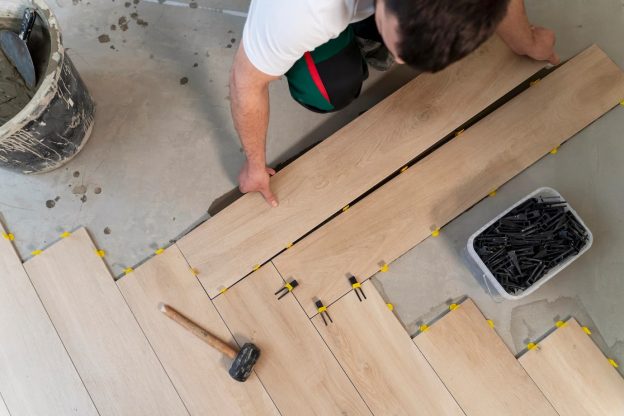Selecting the right flooring for your business is a significant decision that can impact aesthetics and functionality. The flooring choice should align with your business’s needs, brand image, and budget. In this article, we’ll guide you through choosing the right flooring for your commercial space.
1. Consider Foot Traffic
Assess the amount of foot traffic your business experiences daily. High-traffic areas, such as retail spaces or office corridors, may require more durable flooring options, while low-traffic areas, like executive offices, can accommodate more delicate materials.
2. Determine Durability
Durability is a crucial factor, especially in commercial settings. Flooring materials like vinyl, laminate, and certain types of tile are known for their resilience and ability to withstand heavy use. For businesses with heavy machinery or equipment, industrial-grade flooring may be necessary.
3. Understand Maintenance Needs
Different flooring materials have varying maintenance requirements. Consider how much time and effort you will invest in cleaning and maintaining the floors. Some materials, like carpets, may require more frequent cleaning and maintenance than others.
4. Aesthetic Appeal
The aesthetics of your flooring choice should align with your brand image and the overall look of your business. Whether you prefer a sleek, modern appearance or a more classic and traditional style, there are flooring options to suit your design preferences.
5. Budget Constraints
Your budget plays a significant role in selecting the right flooring. While premium materials like hardwood or natural stone can add a touch of luxury, more budget-friendly options like vinyl or carpet tiles can offer durability and style without breaking the bank.
6. Safety Considerations
Safety should be a top priority. For businesses where slip hazards are a concern, consider non-slip flooring options. Additionally, some flooring materials may be more fire-resistant or offer better sound insulation, depending on your business’s needs.
7. Environmental Impact
Eco-friendly flooring options are becoming increasingly popular. If sustainability is a priority for your business, explore environmentally responsible flooring materials like bamboo, reclaimed wood, or recycled carpet.
8. Comfort and Acoustics
Consider the comfort of your employees and customers. For businesses where employees stand for extended periods, like retail or hospitality, flooring with cushioning properties can reduce fatigue. Additionally, flooring can impact acoustics, so choose materials that help control noise levels in your space.
9. Installation and Maintenance Costs
Factor in the cost of installation and ongoing maintenance when budgeting for your flooring. Some materials may require professional installation, while others can be easily installed by your team. Consider the long-term maintenance costs, including cleaning, repairs, and replacements.
10. Local Codes and Regulations
Check local building codes and regulations to ensure your chosen flooring meets safety and accessibility requirements. This is particularly important for businesses in healthcare, hospitality, or food service industries.
Choosing the right flooring for your business is a critical decision that impacts functionality and aesthetics. By considering factors like foot traffic, durability, maintenance needs, aesthetics, and budget constraints, you can make an informed choice that aligns with your business’s unique requirements. Whether you prioritize durability, aesthetics, or sustainability, the right flooring can enhance the overall success and image of your business.
